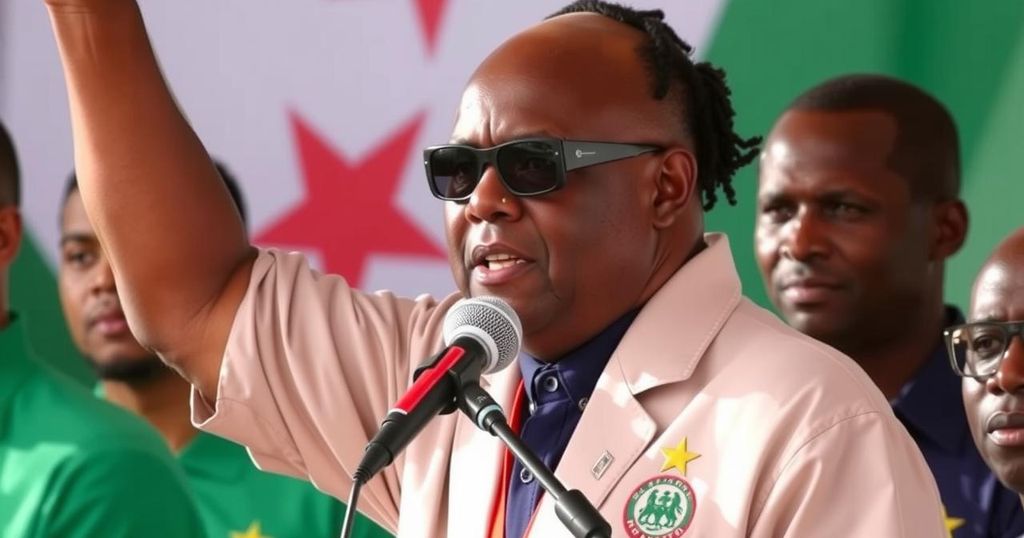Chad’s Ruling Party Secures Parliamentary Majority Amid Opposition Boycott
Chad’s ruling Patriotic Salvation Movement party won a majority in the parliamentary election, securing 124 of 188 seats, amid a boycott by opposition parties who deemed the election a “charade.” The election, the first in over a decade, represents a key moment in Chad’s political transition under President Mahamat Idriss Deby, who aims to decentralize governance while facing significant security challenges.
N’DJAMENA, Chad (AP) — In a recent parliamentary election held in Chad, the ruling Patriotic Salvation Movement party secured 124 out of 188 seats, marking a significant victory amid a boycott from the main opposition parties. Provisional results indicated a voter turnout of 51.5%, as announced by Ahmed Bartchiret, chair of the electoral commission. This event was notable as it represented the first parliamentary election in over a decade and is perceived to consolidate President Mahamat Idriss Deby’s political power.
The parliamentary election was part of a comprehensive transition towards democratic governance initiated after Mahamat Idriss Deby assumed power following the death of his father and long-standing leader, Idriss Deby Itno, in 2021. Mahamat Deby, who also obtained victory in the controversial presidential election last year, asserted that this election would initiate a long-awaited decentralization process, facilitating the distribution of power to local government levels.
However, the election faced significant opposition, with over ten political parties, including the Transformers party and its candidate Succes Masra, calling it a “charade.” The main opposition expressed concerns that the election could mirror the disputed presidential vote, which was deemed not credible by observers. The absence of the opposition’s commentary on the results further complicates the electoral landscape.
This parliamentary election occurs in a critical period for Chad, which is grappling with ongoing security challenges from Boko Haram attacks and a deterioration of longstanding military relations with France, a crucial ally.
Chad’s political landscape has been tumultuous following the death of long-time President Idriss Deby Itno in April 2021, which led to the ascendency of his son, Mahamat Idriss Deby, as a military ruler. The transitional government has faced numerous hurdles, including calls for democratization and the management of regional security threats. The recent parliamentary elections were crucial in addressing these political dynamics and the quest for enhanced governance amid criticism and boycotts from key opposition parties. The move towards decentralization aims to redistribute power and foster regional governance, which has been a persistent demand from the Chadian populace.
In conclusion, the ruling Patriotic Salvation Movement’s significant victory in Chad’s parliamentary election amidst opposition boycotts underscores the complexities of the country’s transition to democracy. President Mahamat Idriss Deby aims to decentralize power, but the contested nature of the election and ongoing security challenges highlight the obstacles that lie ahead in establishing a credible and representative political system in Chad.
Original Source: www.seattletimes.com




Post Comment